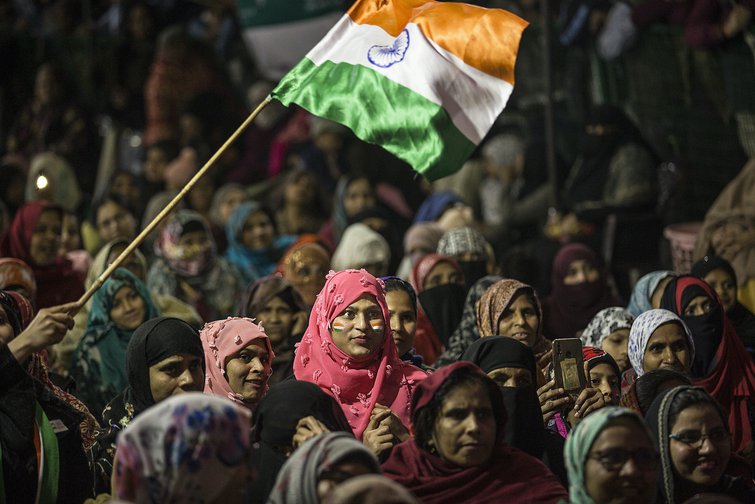From UPSC perspective, the following things are important :
Prelims level: na
Mains level: the current political agenda's impact on India's cultural diversity and constitutional values

Central Idea:
The article emphasizes the threat to India’s secular fabric and cultural diversity posed by the current political agenda, particularly the push towards a theocratic state under the ruling Bharatiya Janata Party (BJP). It underscores the importance of reasserting the constitutional principles of a pluralistic and tolerant India, in contrast to the growing dominance of a unidimensional cultural and religious identity.
Key Highlights:
- The “Objective resolution” of the Indian Constitution adopted in 1947 forms the basis of the Preamble, but recent state-sponsored events challenge the constitutional commitment to secularism.
- The BJP’s agenda is criticized for promoting a theocratic state and diminishing India’s rich cultural diversity by imposing a singular identity.
- The article laments the erosion of the concept of “unity in diversity,” replacing it with a vision of one nation, one market, one language, and one official religion.
- The Constitution’s recognition of and respect for diversities and differences, both politically and culturally, is highlighted as the foundation of India’s progress.
Key Challenges:
- The political effort to centralize and homogenize cultural and religious practices, particularly in favor of Hindutva, poses a challenge to India’s historical pluralism.
- The erosion of tolerance and the imposition of a singular identity may lead to suspicion and animosity among different religious and cultural groups.
- The celebration of a ‘Hindu Rashtra’ contradicts the constitutional principles of a secular state, potentially endangering India’s hard-fought independence.
Key Terms:
- Hindutva: The political ideology that seeks to establish the hegemony of Hindus and the Hindu way of life.
- Theocratic: Relating to a system of government in which religious leaders control the state.
- Pluralism: The coexistence of diverse cultural, religious, or ethnic groups within a society.
- Constitution: The fundamental legal document outlining the structure and principles of a government.
Key Phrases:
- “Flattening of multidimensions”: Describes the attempt to impose a unidimensional cultural and religious identity, eroding India’s diverse cultural landscape.
- “Unity in diversity”: Formerly celebrated, this concept is criticized for being replaced by a vision of singular identity.
- “One nation, one market, one colour, one language, one election”: Illustrates the push towards homogenization in various aspects of Indian society.
Key Quotes:
- “Will Indians place the country above their creed or will they place creed above country?”
- “Our independence will be put in jeopardy a second time and probably be lost forever.”
- “When power outstrips ability, we will fall on evil days.”
Key Statements:
- The Indian Constitution recognizes and incorporates space for diversities and differences in both politics and culture.
- The celebration of a ‘Hindu Rashtra’ is in direct contradiction to the Indian Constitution.
- The Constitution is seen as a guarantee of the right to live with liberty, equality, and justice.
Key Examples and References:
- The consecration of the temple in Ayodhya and the state-sponsored events on January 22, 2024, are cited as instances where the secular principles of the Constitution were violated.
- Mention of diverse celebrations of Dusshera, representing different cultural practices across India.
Key Facts and Data:
- The Indian Constitution was adopted 75 years ago, emphasizing tolerance and solidarity as foundational principles.
- The celebration of the 75th year of the Republic coincides with concerns about the erosion of secular principles.
Critical Analysis:
The article critically examines the current political agenda’s impact on India’s cultural diversity and constitutional values. It highlights the dangers of sidelining pluralism and secularism in favor of a singular identity, emphasizing the need for citizens to assert the constitutional republic over a ‘Hindu Rashtra.’
Way Forward:
- The article calls for a reassertion of the constitutional principles of a pluralistic and tolerant India.
- Citizens are urged to make choices that align with the values of the Constitution, ensuring a diverse and inclusive nation.
- A collective duty is emphasized in retaining the values that have shaped India’s social democracy for 75 years.
In summary, the article advocates for a return to the constitutional principles that have guided India for 75 years, safeguarding the nation’s pluralism and diversity against the current trend towards a unidimensional cultural and religious identity
Get an IAS/IPS ranker as your 1: 1 personal mentor for UPSC 2024
